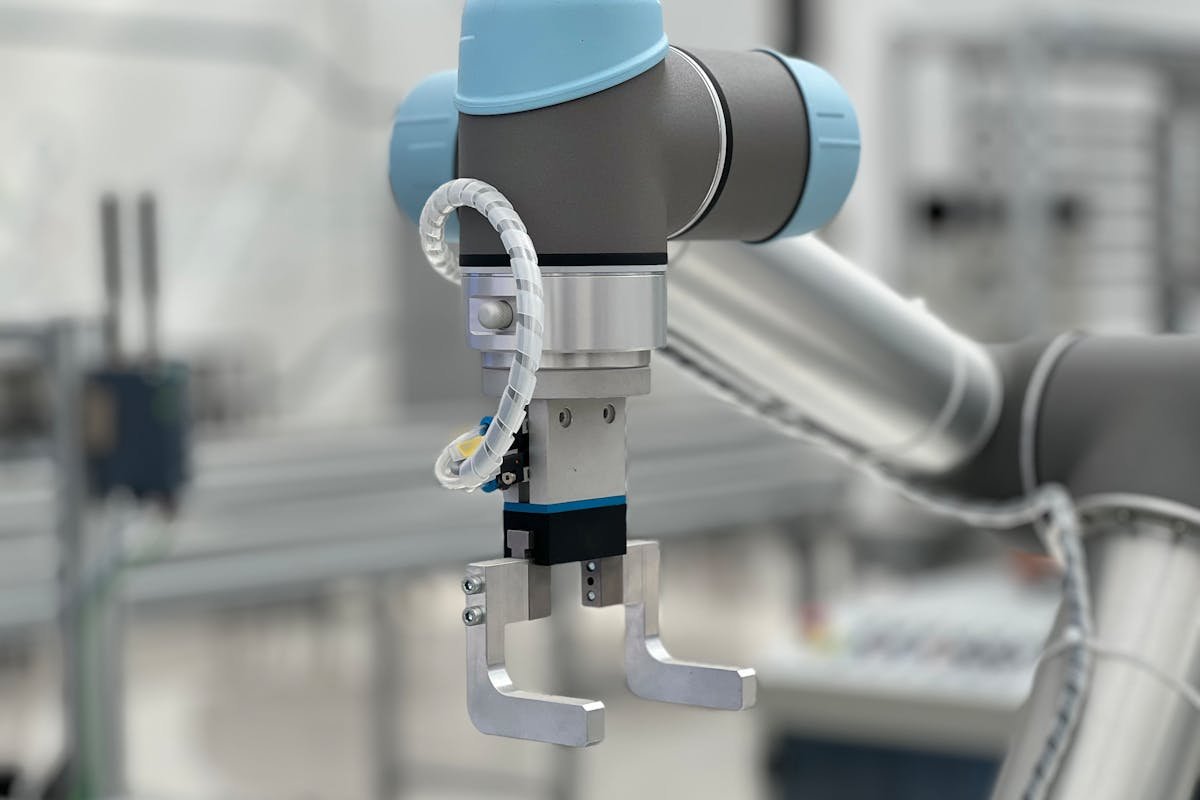Industry 4.0: Definition, ramifications, and advantages and disadvantages
Technology / Date: 03-20-2025

Industry 4.0 is a concept that encompasses automation and information technology , in addition to the main technological innovations in these fields.
All of this applied to manufacturing – understanding the term as the transformation of raw materials into value-added products .
Because manufacture, a combination of the words “hand” and “finishing” in Latin, designated artisanal work, done by hand.
What happens is that the industry is incompatible with the idea of doing things manually.
You might be thinking, “Ok, but what’s new about that?”
In fact, it has been a long time since workers' hands have been replaced by machines .
Even so, we continue to advance in automation , which is the ability of these machines to work without any human operator in command.
Robotics , with systems previously programmed so that equipment performs certain functions alone, is also not very new.
What Industry 4.0 brings is the technological leap of raising this automation to maximum power, allowing robots to perform increasingly complex functions .
And we're not just talking about the operational stuff, like welding two steel plates together, but also about tasks that we thought were exclusive to our intellect.
These are algorithms that make machines analyze data at a speed that a human could not achieve in a lifetime.
In the end, we can say that Industry 4.0 is the reality in which industrial technology is increasingly more efficient: smarter, faster and more precise .
In short, what is the Fourth Industrial Revolution?

Industry 4.0 is also often called the Fourth Industrial Revolution. Why this name?
First, understand that the word “revolution” characterizes phenomena in which there is a radical transformation in a society.
So, it is not any new development in a manufacturer's process that triggers an industrial revolution, but rather a technological trend that impacts production worldwide.
It doesn't happen overnight. It takes decades to consolidate and be recognized as a revolution.
Automation and the Internet of Things , for example, have been talked about for longer than the Fourth Industrial Revolution and Industry 4.0.
Between the end of the 19th century and the beginning of the 20th century, the Second Industrial Revolution developed, with electrical energy and the production line created by Henry Ford , enabling large-scale production.
The third arrived along with information technology, the internet, personal computers and the entire range of digital platforms that modernized work in factories and offices.
In each of these revolutions, machines began to compete for or steal man's leading role in various functions.
And that is what happens today too, but we will return to this subject later.
How important is Industry 4.0?
In a way, Industry 4.0 is a natural movement of transformation in society .
After all, from time to time, behaviors evolve, which requires monitoring by the sectors.
In this sense, it is worth reinforcing that Industry 4.0 does not only cover manufacturing units, but rather the entire industrial ecosystem .
Not to mention that it opens up space for new business opportunities .
For this reason, as we mentioned at the beginning of this article, managers and businesspeople must keep up with modernization .
This technological leap is, therefore, necessary so that we have a reality more in line with our needs.
What are the benefits of Industry 4.0?
Those who are more fearful of change, especially technological change, may have more difficulty seeing the advantages of Industry 4.0.
But the truth is that the Fourth Industrial Revolution has brought many benefits, whether for the business world or for society as a whole.
Check out the main ones below:
New business models
Industry 4.0 is marked by technology and innovative capacity. As a result, new business models emerge on the market.
Companies use digital tools to meet consumer demands and offer differentiated experiences . Just remember some companies that started their activities recently and observe how they have transformed the way we live.
Today, we practically do everything via cell phone and connected to the internet.
More efficient and practical activities
There is no denying that automation increases productivity. Tasks are more practical and efficient thanks to the power of machines.
With technology, several operations have been made easier, especially with the exchange of manual work for intellectual capital .
Safer and more agile processes
Agility is a consequence of the efficiency promoted in the 4.0 era. Technological solutions undoubtedly increase production speed.
Furthermore, today's consumer is immediatist and demands that companies offer increasingly faster solutions. Technology also contributes to improving process safety .
Personalization
Personalization is the watchword in Industry 4.0. If, a few decades ago, consumers were “forced” to consume what was offered, today, the reality is very different.
Consumers seek out distinctive goods and services that specifically address their wants and preferences. Industry 4.0 makes it possible to create exceptional modifications.
Resource optimization
Concern for the environment is increasingly common among companies. In the not so distant past, industries were much less concerned about their impacts.
But now, they have adopted sustainable practices to use resources wisely. Even energy can be saved with existing technologies.
Error reduction
The use of technologies reduces human action in processes. As a consequence, errors are minimized.
This is because machines are prepared , for example, to perform repetitive tasks effectively. A person is more susceptible to failure in activities of this type.
Decrease in expenses
The benefits are even greater when the business affects your pocketbook, aren't they? Cost reduction is, in fact, one of Industry 4.0's primary advantages.
This is mainly due to machine intelligence. In addition to having the autonomy to schedule maintenance, the technologies avoid wasting raw materials.
Follow Us
Newsletter
Subscribe to our newsletter to stay updated with our latest news and offers.
We respect your privacy.







